The handheld radiation detector is capable of identifying various types of radiation including x-rays, gamma rays, and hard beta radiation. The
radiation tester provides audible and visual alerts if radiation is detected. This radiation meter is a good choice for home radiation checks or use in radiation processing and health prevention.
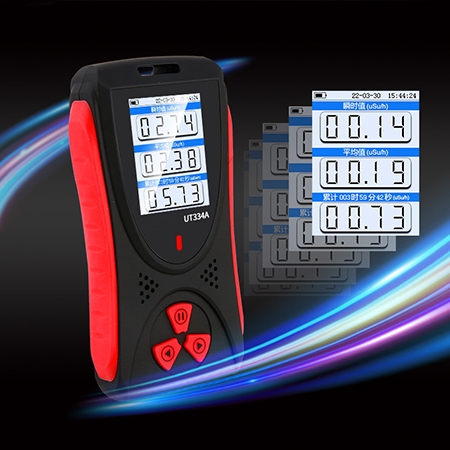
10 sets of historical data saved
- In the timed measurement mode, data can be saved automatically, and the latest 10 historical records can be saved, eliminating loss and misremembering.
- The Geiger counter radiation detector is capable of saving up to 10 sets of historical radiation data, allowing users to track and compare radiation levels over time.
- The radiation detector can store data that can be easily accessed through the device’s interface, providing a convenient way to review past radiation readings for analysis or reporting purposes.
- The ability to save multiple sets of data enhances long-term monitoring and helps identify trends or fluctuations in radiation levels in different environments.
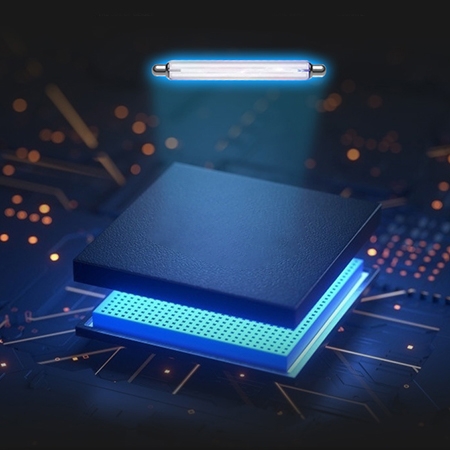
The radiation meter built-in GM technology tube
- The detector utilizes an integrated Geiger-Müller (GM) tube, ensuring highly sensitive and accurate detection of ionizing radiation, including alpha, beta, and gamma particles.
- GM tube technology is a well-established method for radiation detection, offering precise readings and robust performance across a range of environments.
- The built-in GM tube provides long-lasting reliability, minimizing the need for frequent maintenance or replacement while ensuring consistent detection accuracy.
Dimension
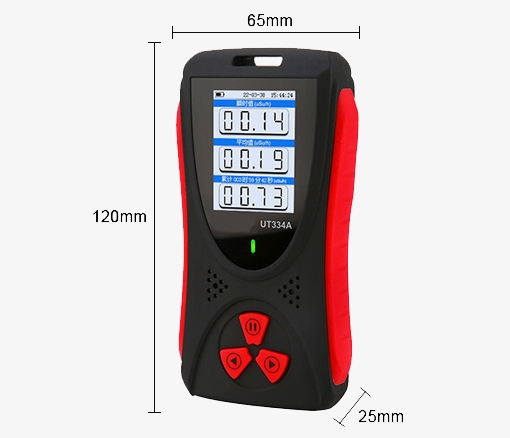
Applications
SISCO radiation detector is a device used to detect and measure ionizing radiation, such as alpha, beta, gamma rays, and neutrons. Radiation detectors are used in medical imaging, industrial safety, environmental monitoring, and security to measure ionizing radiation. They help ensure safe radiation levels, detect contamination, and prevent the unauthorized transport of radioactive materials. They’re also crucial in scientific research for studying radiation effects.

Environmental

Security

Industrial
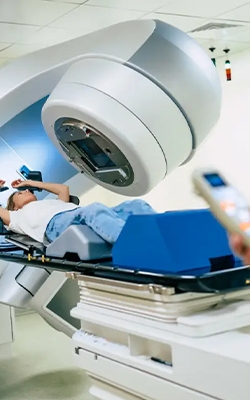
Medical
| Model | SISCO-RD-334A |
| Sensor | GM counter tube |
| Measurement Range | 0.05μSv-50mSv |
| Measurement Accuracy | -17%-25%,based on 137 CSγ |
| Charging Port | Type-C interface |
| Alarm Response Time | td: <10s |
| Alarm Threshold Deviation | -17%-25% |
| Alarm Mode | Sound and light alarm |
| Detection Ray | X, β, γ ray |
| Dimensions | 120*65*25mm |
| Weight | 130g |
Detail
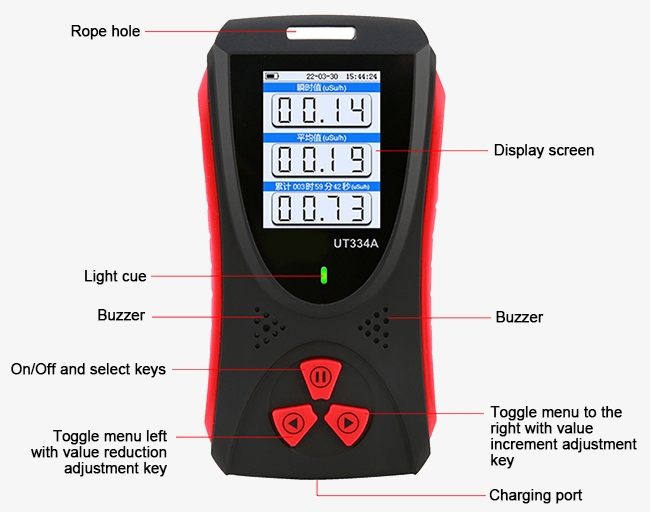
Q1: What is a radiation detector?
A1: A radiation detector is a device designed to detect and measure ionizing radiation, such as alpha, beta, gamma rays, and neutrons. These detectors work by sensing the interaction of radiation with matter, often producing an electrical signal that correlates with the intensity or type of radiation present. Radiation detectors come in various types, including Geiger-Müller counters, scintillation detectors, and solid-state detectors, each tailored to detect different forms of radiation or provide varying levels of sensitivity.
Q2: Do radiation detectors need calibration?
A2: Yes, radiation detectors need regular calibration to ensure accurate and reliable measurements. Calibration involves adjusting the detector to account for any changes in its performance over time, which can be caused by factors such as aging components, environmental conditions, or variations in detector sensitivity. Regular calibration helps maintain the accuracy of the readings and ensures that the detector provides precise data for assessing radiation levels. Calibration is typically performed using known radiation sources and may be required by regulatory standards to ensure compliance and safety.
Q3: Can radiation detectors detect non-ionizing radiation?
A3: Most radiation detectors are designed to detect ionizing radiation, such as alpha, beta, gamma rays, and neutrons. Non-ionizing radiation, which includes radio waves, microwaves, infrared, and visible light, requires different types of sensors. For example:
- Radio frequency (RF) meters and electromagnetic field (EMF) meters are used to measure non-ionizing radiation like radio waves and microwaves.
- Photodetectors (such as photodiodes) measure visible light, while infrared sensors detect infrared radiation.
Tips: What types of radiation can Geiger counter radiation detectors measure?
Different radiation detectors are designed to detect various forms of ionizing radiation:
- Alpha particles: Heavy, short-range particles blocked by paper or skin.
- Beta particles: Lighter, able to penetrate skin but stopped by plastic or glass.
- Gamma rays: High-energy radiation that can penetrate most materials and require dense shielding.
- Neutrons: Neutral particles that are detected using special neutron detectors.
Thank you for buying industrial test and measurement equipment on SISCO.com, all products sold by SISCO and the partner cover a 12 months warranty, effective from the date of receiving the products.
What is covered?
SISCO is responsible for providing free spare parts, and free technical support to assist the customer to repair the defective products until the problem is solved.
What is not covered?
- Product purchased from anyone other than a SISCO store or a SISCO authorized reseller.
- Expendable parts.
- Routine cleaning or normal cosmetic and mechanical wear.
- Damage from misuse, abuse or neglect.
- Damage from use of parts other than SISCO approved.
- Damage from use outside the product’s usage or storage parameters.
- Damage from use of parts not sold by SISCO.
- Damage from modification or incorporation into other products.
- Damage from repair or replacement of warranted parts by a service provider other than a SISCO authorized service provider.
- Damage caused by the application environment not meeting the product usage requirements and the failure to perform preventive maintenance.

